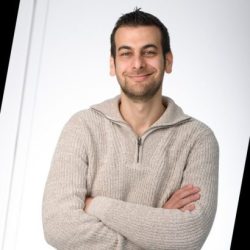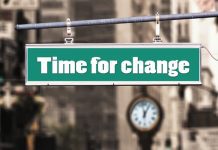

Salomon said, “In monday.com, what we’re building is Work OS. It’s basically a no-code, low-code platform. The idea is to democratise the way that organisations work. Behind all this, we want to help each organisation, team, or group of people be more efficient in their work and processes.”
Monday.com is still growing its R&D teams at a time when others are cutting back. Why did you decide to re-invest at this time?
“As monday, we see the business growing, and we saw the business growing pretty well in the last few years. We feel it’s a great time for us as a company to grow the R&D, and we needed to grow it as fast as the business growth to achieve all the business goals that we set ourselves. To see more enterprises and big companies working with us.
“We found that doing the same thing we’ve done so far, which was mostly built in the Israeli talent pool, won’t be enough to grow. We have amazing developers in Israel and an amazing talent pool, but it’s not big enough to grow infinitely to the big R&D we need. Last year, we opened our first R&D site outside of Israel in Warsaw. This year, we opened our site here in London.”
Why London?
Why London? Because it isn’t necessarily the cheapest city.
“Yes, in general, it’s less about the budget. It’s about promoting what we feel are our R&D values and our company values. First of all, London is our European HQ. We felt that if we wanted to increase the level of presence to promote those enterprise deals and to be closer to our clients, this was the right place to be.
“Besides that, in London, we have access to amazing talent. I feel it’s quite a unique market in terms of both product sense for developers and some technical expertise. This is what works for us, the mix between high technical abilities, product sense and user-facing.”
How do you differentiate Monday.com from other firms in London?
“What we’re bringing to the market is, I feel, that we have a unique offering to developers and everyone that joins us. I feel that we have a good balance between being part of a relatively big, stable, public company, so everyone can see the reports we’re sharing and the earnings calls. We’re stable in this pretty hectic time in the last few months. On the other hand, we bring a startup vibe, which we really. Working together, everyone is part of the same team and has the same goal.
“The office is not that big. We’re still sitting together in the office. If you need feedback from a salesperson, they are on the table right next to you. If you need that CX or CS help, just jump three tables. See them at lunch, or you can see them in our weekly site meeting. It’s a balance of being super impactful from a startup inside a major, big, stable company. I think it’s unique and something personally, I really like.”
You’ve spoken about having a builders team. What is that?
“It’s not only an R&D team. The builders in monday have three types of roles. One of them is part of the R&D, the engineering. We have the design part. I have a partner here, Meytal (Badichi) that joined me from Israel. She’s leading the design part, product design, brand design, and stuff like that. We also have the product part, product analysts and product managers. And those three kinds of roles together are what we call the builders.”
Looking Forward
What do you hope to achieve in 2023?
“In terms of R&D, we’re always looking to add more features. We’re always looking to create a better product and a better experience for users. We’re looking at both perspectives, core engineering, in terms of stability, performance, and allowing our product and the user to have better scale. And to create something more complete in terms of the experience, adding more features. We have a lot of plans going forward.”
Can you share what your team is working on for 2023?
“Here in London. We are taking some building blocks on our product and trying to rebuild some of them to improve. From the product side, we’ll be focusing mostly on increasing our enterprise features.“
In terms of future tech, what’s on your roadmap?
“From our end, to improve the platform, to increase the level of customization that will allow other people to contribute. For the marketplace to create more products, just like the CRM. Definitely looking to more openness to increase the level of how companies can really incorporate their way of working, and how we can connect to that.”
Are you looking to do anything with generative AI?
“Personally, it’s amazing to be a technical person in this time. For me, it’s really interesting to see how AI changes almost every product that we’re looking at, every sector that we’re looking at, and it’s definitely something that we, as monday, are looking into.”
On Challenges and Priorities
What are your challenges?
“For me, coming to a new market to try and recruit developers, build teams and build global teams. It’s a different challenge. I have had the experience of doing it before, but on a different scale and in a different setup. It’s really challenging for me right now to find the right people that will be the seed that I can grow the site with. Who will be the best people to bring in?
“One of my interview questions is: ‘What is the extra thing that you bring to the team? What is your superpower that you will bring to the team?’ To find the right mix between those superpowers that we’ll be able to run currently as a team. Each of them can bring something that will make us a better team, and how we can work more efficiently. This is something that keeps me up at night.”
What are your priorities?
“First of all, it is to build our global presence here in London and Warsaw. As with every engineering manager, it’s how we build really good teams that can run autonomously, execute very well on the roadmap, and build the best product for our users. This is what we see as builders—building the right mixture between strategic thinking and building for the long term and having the short-term execution and the right impact, which is one of our values that Monday. How can we bring real value to our users as soon as we can?”
The Book Question
What’s the latest book you read? And what was your take out from it for business?
“This is not the latest one, but it is one of the good ones, The Unicorn Project (by Gene Kim, Amazon Aus, UK, US). I like it for two reasons. First, it feels like someone is watching you the entire day and then wrote a book about it. It feels like it’s a reflection of my day-to-day. How do I manage a project, and how do the teams look at the project?
“There are a lot of takeaways. It felt more like a therapy session than a book because it’s written as a novel. It is not an instruction of how to build a good team. They give you what happened, what didn’t work for them. Why, for example, that DevOps guy, in that case, was overloaded? How his manager didn’t see that he had a bottleneck in him. One thing that is always on my mind is how can I open bottlenecks. This book specifically helped me find out how I can identify those better and be more aware of the load on people.”
You talk about projects rather than products, but the R&D team appears to be set up more as a product-centric function at first glance. What is your view on this?
“So we are more product (centric). I look at it as a range. The answer that is always right is, ‘It depends’. We have a lot of cases of product-centric. We felt that, in some cases, we need to have a task process or something that will connect a few products in order to create an underlying infrastructure that will serve all of them. So we need to find the right balance. We focus mostly on product and where we have those task processes, and then the implementation details of it can look a bit different.”

























